Army Practical Nursing Specialist (MOS 68C) is a career that provides care for injured soldiers, as well as the few types of medical treatment needed for those who depend on a source outside of active military forces. The Army Practical Nursing Specialist (MOS 68C) is primarily responsible for diagnosing, treating, and stabilizing patients who are not critically injured. The responsibilities include giving medical treatment to soldiers in the field. Unlike most military jobs, army nurses do not have direct contact with the enemy. Instead, they provide care for U.S. soldiers and their families. In most cases, they will provide logistical support to those who carry out missions or assist forces in armed conflict. The job also involves interaction with members of the enlisted force, including patients. As a career field, this MOS fits into the category of military medicine.
MOS 68C is a part of Mos Army List.
MOS 68C Requirements: Qualifications and Skills
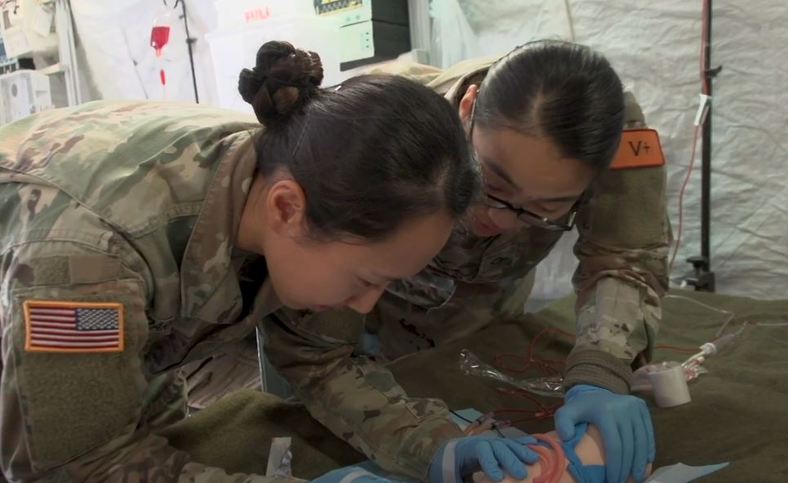
In order to become a MOS 68C, there are a few requirements you need to acquire:
Qualification
ASVAB scores must be valid at the time of application to qualify for consideration. To be a MOS 68C, applicants will undergo rigorous training, including the U.S. Army Signal School Basic Course for ten weeks and Advanced Individual Training (AIT) for 52 weeks. A 101 score on the Skilled Technical segment and 107 on the General Technical segment are required.
To become a Motor Transport Operator, you need to meet the MOS 88M: Motor Transport Operator & Military Job Info qualification standards, which include passing the Armed Services Vocational Aptitude Battery (ASVAB) test, meeting height and weight requirements and undergoing physical fitness tests.
Effective Communication
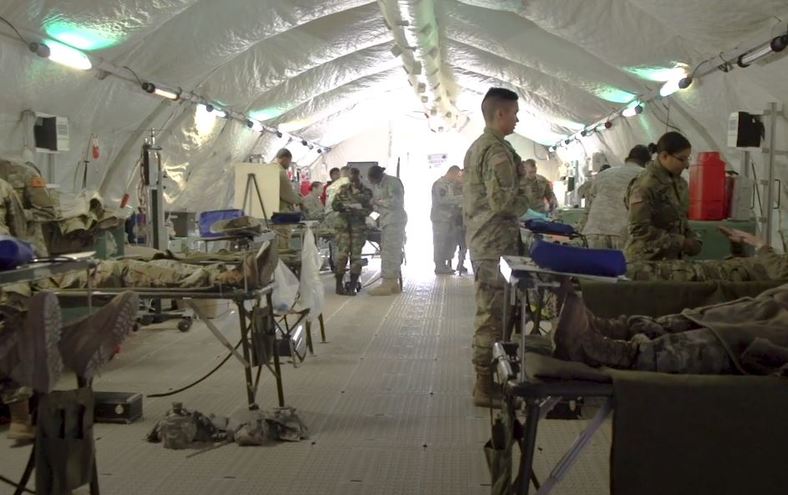
Communication skills are the key to success in any occupation, and military service is no exception. Communication skills will help you to get your point across, receive feedback from supervisors and colleagues, and understand the needs of others around you so that you can be their advocate.
Communication is an important quality to possess as a nurse. Communication with patients and their families ensures that they are informed and aware of their care. Communication can also improve patient satisfaction, which enhances patient outcomes.
Perform under stress
In military service, good communication skills will help you thrive under stress. In every aspect of military life, from combat operations to humanitarian efforts abroad, there are times when people’s lives hang in the balance while decisions have to be made quickly under enormous pressure. You will need to stay calm and composed if you want your words or actions to have the best possible effect at such times.
When working in 68C MOS it’s important to be able to perform under stress. One way to improve your physical fitness and ability to handle stress is by doing functional exercises. Check out this list of functional exercises that can help improve your strength and endurance. Incorporating these exercises into your training routine can help prepare you for the physical demands of 68C MOS.
Detail Oriented
Nursing professionals must be detail-oriented in order to provide quality care for patients. Attention to detail allows for appropriate recognition of any changes or changes that may occur in the future, such as wound healing or weight gain/loss. These details allow Practical Nursing Specialists the opportunity to better answer questions from patients and make necessary adjustments depending on a patient’s condition at any given time during their stay.
Care to others
Compassion, care, and concern for others are one of the most important character traits of a nurse. Good communication skills will also help you to show compassion and care for others under stress since the emotional needs of other people will inevitably come into play. Your ability to listen openly and attentively, to give feedback in a constructive manner, and to take action based on such feedback will greatly improve your relationships with your peers, your family members, and your subordinates.
Nurturing can be achieved by making patients feel comfortable in their environment. This allows patients to change the way they view the condition or the condition of their loved one. Compassion can be achieved through listening to your patient, asking questions that allow them to get to know them better, understanding what is painful for them, and providing reassurance when needed. Patients appreciate the nurse’s compassion because it allows them to feel more at ease knowing that their needs are being met.
If you’re looking to provide care to others, consider getting involved with Military Child and Youth Services (CYS). They offer a wide range of programs and services to support military families, including daycare and after-school programs, sports and fitness activities, and educational resources. By volunteering or working with CYS, you can make a meaningful difference in the lives of military children and their families.
Interest in the following field
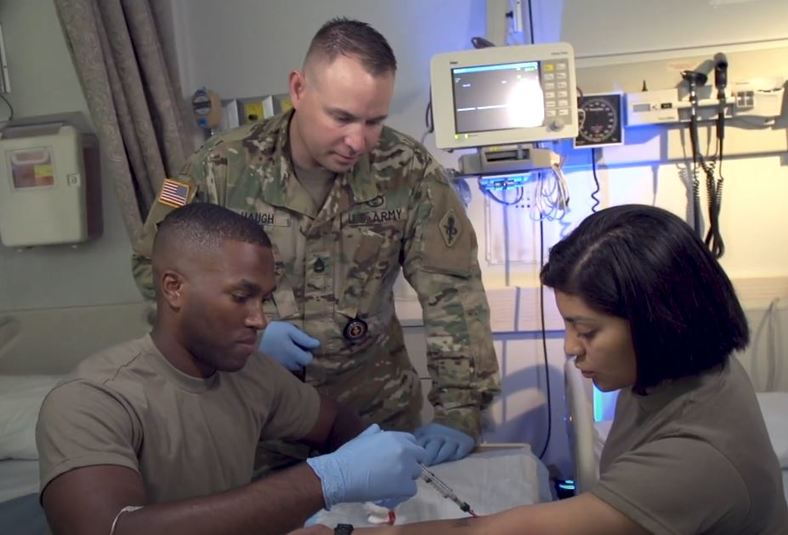
You’ll be responsible for providing a broad range of healthcare services in a variety of settings. You’ll learn to take care of the sick and injured, provide preventative health care services, and help people prepare for surgery. Army nursing jobs perform a wide range of duties; it is one of the most respected medical careers available in the U.S. Army.
Interest in chemistry: The Army provides an unlimited study of chemistry and all of its related fields. You’ll be asked to demonstrate your knowledge and skills in chemistry-related tasks such as analyzing food, water, and air samples; designing experiments; and evaluating chemical hazards.
Interest in biology: The Army helps you learn the fundamentals of the human body through biology classes. These classes help you understand how living things work at a cellular level, introduce you to organs such as the circulatory system, digestive system, respiratory system, nervous system, and skeletal muscle.
Interest in algebra: The Army has a variety of math courses available for students looking to pursue a career in medicine or engineering. These mathematics courses cover topics such as logic, statistics, probability, and applied math.
Interest in general science: The Army has a variety of general science classes available for students looking to pursue a career in medicine and engineering. Study of chemistry, biology, and physics is required for school-issued EMT/Paramedic and Physician Assistant (PA) licensure.
click here for more information on Army MOS 68C Career Details
Job Responsibilities
Army Practical Nursing Specialists (MOS 68C) in the Army health care system perform a variety of duties to support medical treatment, surgical procedures, environmental sanitation, vital signs monitoring, physical therapy, and dental hygiene. Duties include assisting nurses with specialized medical duties such as inserting catheters or preparing patients for surgery or certain types of examinations; maintaining electronic health records; administering medications under strict guidelines; positioning patients to participate in physical therapy exercises; bathing patients, and performing other environmental sanitation tasks such as sterilizing equipment. They also help patients with clothing, food, and personal hygiene.
Assist in patient care routines
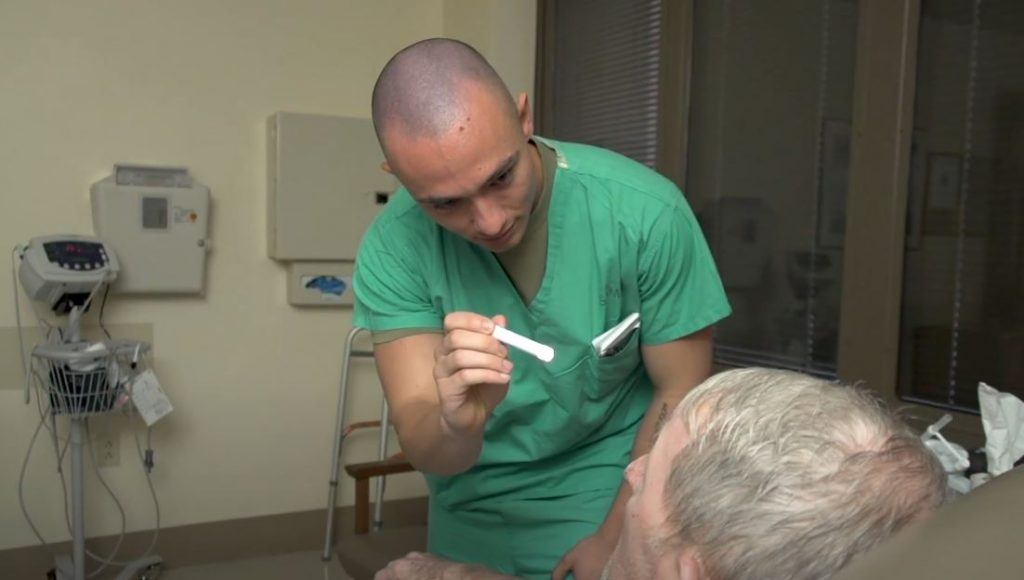
Army Practical Nursing Specialists are much the same as Army Nurse Practitioners. The nurse administers medications, perform procedures, diagnose and treat patients in or outside the hospital. The only difference is that they are not rotating any longer through rotating shifts within 24 hours. They perform their duties whether they are on call, off-duty, or deployed. They must be qualified to use any fluid delivery system approved for use by the medical treatment facility, in addition to being fluent in English language skills for all patients from all countries. They are also required to complete the AARC Advanced Cardiac Life Support course or equivalent training as well as CPR certification. They also need to know and be able to demonstrate how to use different equipment, including sterilization techniques and first aid.
Administer medications
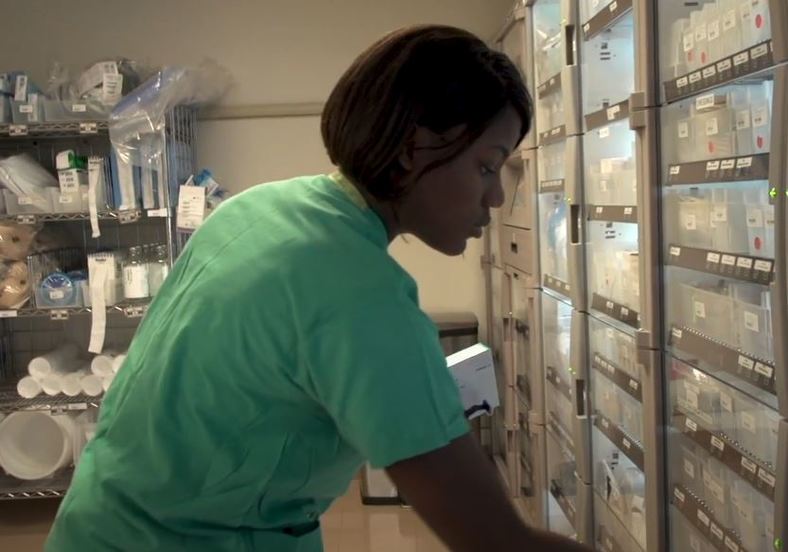
The 68C must be qualified to use any fluid delivery system approved for use by the medical treatment facility, in addition to being fluent in English language skills for all patients from all countries. They are also required to complete the AARC Advanced Cardiac Life Support course or equivalent training as well as CPR certification. This means they can monitor a patient’s heart, monitor blood pressure, monitor breathing, help determine the need for an IV and show a level of clinical skills to be able to treat a patient in a stressful situation.
As a 68C MOS, you will be responsible to administer medications to Army personnel. You will work under the supervision of an Army physician and follow protocols to ensure the right medication is given in the right dosage. For more information on other Army jobs, check out the list of Army jobs.
Submit report
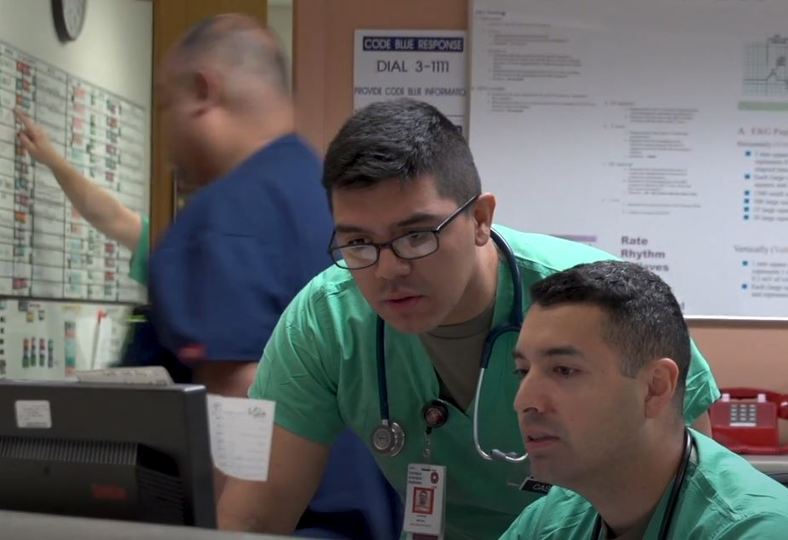
The 68C must submit weekly reports of all patients treated by them that week. This report must include demographics, type of injury, method of injury, and prognosis. This report is to be submitted by the Saturday before the following week begins. The reports are usually sent electronically but can also be faxed or hand-delivered during working hours.
Salaries
As in the Army, the salary depends largely on the individual’s rank or time in service. Here is a list of Pay Grade, Rank, and Minimum Monthly Pay:
Private (E-1), Min Pay: $1785
Private Second Class (E-2), Min Pay: $2001
Private First Class (E-3), Min Pay: $2104
Specialist (E-4), Min Pay: $2330
Corporal (E-4), Min Pay: $2330
Sergeant (E-5), Min Pay: $2542
Staff Sergeant (E-6), Min Pay: $2775
Sergeant First Class (E-7), Min Pay: $3208
Master Sergeant (E-8), Min Pay: $4480
First Sergeant (E-8), Min Pay: $4480
Sergeant Major (E-9), Min Pay: $5473
Command Sergeant Major (E-9), Min Pay: $5473
Sergeant Major of the Army (E-9), Min Pay: $5473
When pursuing a career in the military, MOS 68C can offer a competitive salary with opportunities for growth. Use the Military Pay Calculator of 2023 on Hood MWR to estimate your potential earnings and benefits as a healthcare specialist in the Army.
Benefits
There are several benefits associated with MOS 68C, including medical insurance, paid sick time, vacation time, clothing allowance, free housing, and food, as well as tuition assistance:
Medical Insurance
The Army MOS 68C provides a wide variety of medical benefits, including mandatory health and accident coverage. Medical coverage is obtained through the special Program. The Program offers a wide variety of medical services at participating facilities where you can visit for routine checkups, routine hospitalization and inpatient care, and outpatient care. Service members’ dependents may qualify for coverage too!
Paid sick time
Active-duty specialists receive paid sick leave in the service, which is vital for physical, mental, and emotional health. The Specialists may use up to three days of sick leave for minor illnesses such as colds, flu, and upset stomachs. Paid sick leave may be used concurrently with any other paid leave time the Soldier is entitled to receive in accordance with applicable state and federal laws.
Vacation Time
Sick leave and annual leave earned as a Specialist or as an Officer may be used as vacation (vacation leave). Vacation hours earned as a Specialists may be used for any purpose the Specialists desires, except those military obligations that require immediate retention on active duty. Vacation hours earned as an officer cannot be carried over to the next calendar year.
Looking for some outfit ideas to wear in Hawaii? Check out our comprehensive guide on 50 Hawaii Packing List Ideas to help you look your best while exploring the beautiful beaches and scenery of Hawaii. From beach-ready bikinis to casual dresses perfect for sightseeing, our guide has got you covered.
Free Housing and food
The Army MOS 68C provides a wide variety of benefits, including housing and food allowances. Soldiers are eligible for the Basic Allowance for Housing (BAH). The BAH is paid into your bank account each month and will cover rent, utilities, furniture rental, and other miscellaneous expenses related to quarters. This allowance can be used to help offset any housing expenses not covered by the BAH, such as mortgage or interest payments on loans secured by Army-owned real estate.
Tuition Assistance
The Army MOS 68C is eligible for Tuition Assistance (T.A.) to help pay for college courses. To qualify, the Soldier must be enrolled in a degree or certificate program at a qualifying institution. The tuition assistance courses must lead to an associate’s or bachelor’s degree or another credential such as a vocational certificate that will make the Soldier more valuable to the Army and U.S. society in general or improve the Specialists performance of his or her duty assignments.
Clothing Allowance
All enlisted active-duty soldiers and airmen receive a clothing allowance to replace clothing that is lost or damaged while in the service. The Clothing Allowance (C.A.) is paid into your bank account each month and will cover any necessary replacement costs for uniforms, work clothes, etc.
If you are serving as an MOS 88M, you will receive a clothing allowance to maintain uniforms and other military gear. Learn more about the responsibility of a motor transport operator and how to become one with this military job info guide.
Career Opportunities
Practical Nursing Specialists are the art and science of taking care of patients who are sick or injured. Practical nurses are professionals who provide direct patient care under the guidance of a registered nurse.
Emergency Medical Technicians
Emergency medical technicians (EMTs), paramedics, and ambulance dispatchers are health care professionals who work on the front lines. They provide immediate on-scene care to patients in their care and transport them to the hospital, providing the necessary lifesaving measures while transporting patients. EMTs can provide hands-on skills such as CPR and dealing with emergencies such as seizures.
Medical Laboratory Technicians
Medical and clinical laboratory technologists assist in testing blood, urine, and other body fluids under the supervision of a healthcare professional. They also perform tests for a life-threatening illness that require immediate medical attention or that help diagnose a disease or condition. They may collect and prepare laboratory and diagnostic samples and then prepare and analyze test samples or specimens that physicians order for patients.
Registered Nurses
Registered nurses (RNs) are healthcare professionals who specialize in taking care of patients. They are highly skilled at diagnosing patients’ symptoms, planning care regimens, teaching the family about the illness or procedure, administering care to keep the patient comfortable, helping with recovery, and managing patient records. R.N.s ensure their patients get appropriate treatment for their condition by collaborating with doctors, other healthcare professionals, family members, and other members of the health care team.
When it comes to working long shifts as a nurse, comfortable shoes can make all the difference. That’s why many registered nurses opt for shoes with ample support and cushioning to help prevent foot pain and fatigue. A good pair of shoes can also help prevent slips and falls in a fast-paced hospital environment.
Paramedics
Paramedics help provide critical care to patients through emergency medical services (EMS) systems. Usually, they are trained for one of two roles, emergency medical technician (EMT) or paramedic. Some paramedics are trained in airway management. An EMT uses basic life support to provide care, while a paramedic provides more advanced trauma care and can administer drugs that may include pain killers and anesthesia. They also have the skills to provide invasive airway management techniques, including intubation and mechanical ventilation in certain situations. The EMT-Paramedic is an evolving position within EMS systems due to the important part it plays in the current healthcare system.
Licensed Practical and Licensed Vocational Nurses
Licensed Practical Nurses (LPNs) and Licensed Vocational Nurses (LVNs) provide care and treatment to patients under the supervision of doctors. They can administer medications, take vital signs, and change bandages. They specialize in one or several, depending on their license, of the following: cardiovascular system; protein-energy malnutrition; gerontology; psychiatry; pediatric; perioperative nursing; home health care nursing; or surgical/orthopedic nursing. A licensed practical nurse is the entry-level position for all nurses in the United States.
Other Occupations
Other occupations with similar duties as those listed above include nursing assistants, nurse technicians, and medical assistants. These occupations also help those who are sick or injured by providing calming, therapeutic, and supportive care. The duties and responsibilities of nursing assistants, nurse technicians, and medical assistants vary from state to state.
Summary of MOS 68C
The MOS 68C is a military occupation specialty that has no direct civilian equivalent. The specialist supports medical treatment for wounded, injured, or ill individuals in the field. They provide medical supervision and documentation in military operations. This occupation requires candidates to be proficient in problem-solving skills and the ability to analyze the situation in order to take effective action.
FAQs
What is a practical nursing specialist?
A practical nursing specialist is a registered nurse who performs ancillary nursing services. This occupation requires specialized training and the completion of a registration exam administered by the Nurse Aide Registry. In addition to meeting all qualifications listed under “Qualifications for Registration as Practical Nurses,” practitioners must also demonstrate their ability to provide care related to skin diseases, wounds, osteoarthritis, cancers-related disorders, infectious disease prevention, and control compliance.
As a Practical Nursing Specialist, you will provide primary healthcare to patients under the supervision of a physician or nurse. A career as a Practical Nursing Specialist is rewarding, and there are many opportunities for growth. Check out the full list of Army Jobs at Hood MWR to see if this career is the right fit for you.
How long is the 68C phase1?
The length of time for phase 1 is 11 weeks long.
What is MOS 68C?
MOS: 68C has responsibilities and duties performed under direct or indirect supervision with knowledge of the principles and techniques of nursing care for patients in military health care facilities. Performs patient-care services, such as phlebotomy, injections, measuring vital signs, collection of blood samples, and suture removal. In addition, performs minor surgical procedures such as draining infected wounds or lancing boils. May provide first aid and medical treatment to injured or ill soldiers during tactical operations.
If you are joining the Army as MOS 68C or any other MOS, it’s important to know the Army Tattoo Policy for 2022. The Army has strict rules and regulations about tattoos, including their size, content, and location on the body. Violating this policy could lead to disciplinary action or being barred from enlisting. Make sure you understand the rules before committing to body art that might prevent you from achieving your career goals.
Does 68C require security clearance?
Those who hold the MOS 68C must maintain a current Secret security clearance. The duties performed as a 68C include assisting in performing minor surgical procedures such as draining infected wounds or lancing boils. As such, the potential exists for exposure to infectious diseases and other materials that can cause harm to national security through unsecured handling. This duty includes participating in tactical operations.
